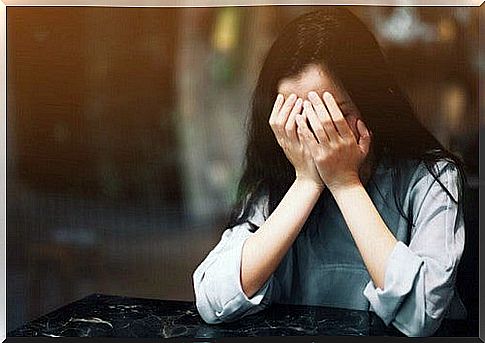Bipolar Disorder And Emotional Lability: Differences

Although bipolar disorder and emotional lability may seem the same, the differences are important. When it comes to bipolarism, the first thing that comes to mind is a person prone to sudden mood swings. However, it is a much more complex disorder: what is it and what is it not and how does it differ from emotional lability?
Bipolar disorder: what is it and what is it not?
Bipolar disorder is a mood disorder characterized by the presence of manic or hypomanic episodes and depressive episodes. Hence, it is more than just being emotionally unstable; indeed this concept is abused in everyday language.
When it comes to a “bipolar” person, many think of emotional instability or lability and recurrent mood swings. But bipolar disorder doesn’t necessarily follow the same path, although the two paths sometimes intersect.

Types of bipolarity
Bipolarism is characterized by the appearance of phases or episodes. A manic episode lasts at least a week (so we’re not talking about a momentary crisis). A hypomanic episode lasts at least four days, and a depressive episode at least two weeks.
In bipolar disorder, at least one manic or hypomanic episode and one depressive episode must have occurred over time.
We speak of bipolar I disorder when a manic episode and a depressive episode appear , of bipolar disorder type II when a hypomanic episode and another depressive episode appear.
Episodes in bipolar disorder
A manic episode is defined as an altered and constantly activated, expansive or irritable state of mind. There is hyperactivity and an abnormal increase in energy which are manifested by symptoms such as: hypertrophic self-esteem or grandiosity, reduced need for sleep, logorrhea, flight of ideas, etc. In the hypomanic episode the symptoms are the same, except that they are of a temporary nature (in this case it lasts four days and not seven) and that the episode is less intense or does not require hospitalization.
As for the depressive episode, it is characterized by a depressed mood for most of the day, almost every day, or by a decrease in interest or the ability to feel pleasure (apathy or anhedonia).
It is followed by other symptoms such as insomnia, hypersomnia, fatigue or loss of energy, feeling of worthlessness, agitation or psychomotor slowing, etc.
Emotional lability
We have defined bipolar disorder, but what is emotional lability? It is defined as an abnormal variability of affective expression, with repeated and sudden changes. It equates to emotional instability.
People with emotional lability are seen by others as “intense” personalities who move from one emotion to another in seconds or minutes.
In this sense, it is difficult for the person to find an emotional balance (changes occur quickly).
Bipolar disorder and emotional lability
So what are the differences between bipolar disorder and emotional lability? Primarily bipolar disorder is a serious disorder, while emotional lability is a characteristic of the person. In other words, emotional lability is not a mental disorder, although it is an affective disorder.
On the other hand , emotional lability involves sudden changes in mood ; conversely, in bipolar disorder, the changes are not as sudden and the duration of euphoria (manic episode) or sadness and anhedonia (depressive episode) is longer.
We remind you that these episodes have a minimum duration of four days; on the contrary, the alteration of the humoral state in the emotional lability can last even only a few minutes.
Finally, bipolar disorder requires the use of drugs (usually lithium), while emotional lability is usually managed with psychotherapy.

Final Thoughts on Bipolar Disorder and Emotional Lability
Bipolar disorder and emotional lability are two concepts that should not be confused. While the first constitutes a true mental disorder, in the second case we speak of alteration of affectivity. Both conditions interfere with the person’s life, but they do so much more in bipolar disorder.
Some people with bipolar disorder may have emotional lability, but the opposite is not always true: being emotionally labile does not mean being bipolar (for this to happen, the occurrence of specific affective episodes is necessary).









